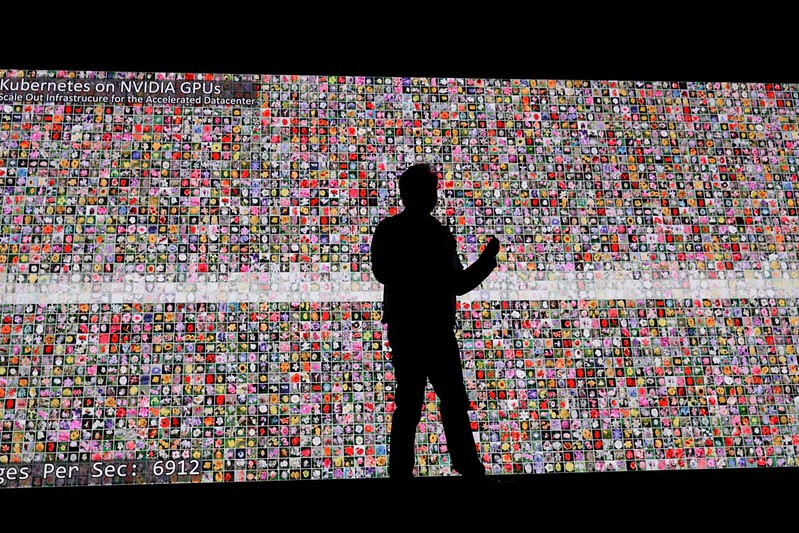Whether software engineers are trying to break into the industry or deep in their careers, it’s always good to know what coding languages to learn next, and what skills will help level up.
It leads to the perennially important question:
What are next year’s most essential technical skills to know?
We put that query to mid-Atlantic engineers who were recently honored for their work this year. For an hour last week, a couple dozen of Technical.ly’s 2021 RealLIST Engineers 2021 from all five of our markets came together on our public Slack to discuss everything from professional development to how to decompress after work, to lessons they wish they knew early in their careers, AMA style.
Join Technical.ly's SlackHere’s a look at how a handful of the attendees responded when we asked about the technologies to learn for 2022:
Kubernetes
Kubernetes is essential, said Eric Solender, cofounder and CTO of Baltimore-based MindStand Technologies, which uses AI to prevent hate speech and misconduct in online communities.
“I’d say Kubernetes in general and how to use it with AWS/Azure/[Google Cloud Platform]. Also having the knowledge of how to efficiently design and deploy services to Kubernetes and how to integrate that with resources that are cloud provider specific. Think using managed Redis with a Kubernetes cluster,” he said.
Kubernetes is an open source container management system used for systems that need to manage scale. If you’re working on a project for a big company or a project with a huge scope, it’s highly likely you’ll run into Kubernetes. It has been growing in popularity over the last few years, as more large enterprises started using it.
If you’re looking for a basic rundown of commands for Kubernetes check out our basic commands guide and video from our series, So You Want to be a Software Developer?
Cloud services and infrastructure/DevOps
A running theme for the utility of learning program languages like Kubernetes is how useful they are when working with cloud services like Amazon Web Services (AWS), Microsoft’s Azure and Google Cloud Platform.

Dan Dutrow. (Photo via LinkedIn)
Dan Dutrow, director of software engineering for Baltimore-based data firewall company Qualytics offered first-hand knowledge on the importance of learning cloud services from a senior leader’s perspective.
“As someone who has hired an entire software engineering team recently, I can tell you that the hardest folks to find have been Infrastructure/DevOps. Go learn AWS, GCP, and Kubernetes,” he said.
Andrew Hian-Cheong, principal architect of AI and machine learning at DC-based policy intelligence company FiscalNote, agreed.
“Dev ops/infrastructure skills are one of the biggest gaps at a lot of places, even though the latest Infra as code tools make it more accessible than it’s ever been. They are some of the skills you rarely touch upon in most programs/courses unless they are focused on just that role.”
The fundementals: Coding and communication

Matt Ford (Photo via LinkedIn)
While they may not be the first things technologists think they need to learn, the skills that involve communicating with colleagues and clients are lasting.
“Tech skills will come and go, but the key skills are the ones around communication. Writing and documenting, and speaking/presenting.” said Matt Ford, principal artificial intelligence architect at Fells Point-based healthcare analytics firm Protenus. “I say this as someone who went into engineering specifically because I thought those WEREN’T needed skills.”
When it comes to software development itself, learning the fundamentals is still always valuable, even as the tech world rapidly changes and expands.
“For frontend development, it might be an unpopular opinion,” said Daniel Hunter, senior frontend engineer at Philly-based partner ecosystem platform Crossbeam. “But my first answer to this question will always be ‘The Fundamentals’. Resources like ‘You Don’t Know JavaScript’ and Google’s web.dev project never go out of style.”
Donte Kirby is a 2020-2022 corps member for Report for America, an initiative of The Groundtruth Project that pairs young journalists with local newsrooms. This position is supported by the Robert W. Deutsch Foundation.Before you go...
Please consider supporting Technical.ly to keep our independent journalism strong. Unlike most business-focused media outlets, we don’t have a paywall. Instead, we count on your personal and organizational support.
3 ways to support our work:- Contribute to the Journalism Fund. Charitable giving ensures our information remains free and accessible for residents to discover workforce programs and entrepreneurship pathways. This includes philanthropic grants and individual tax-deductible donations from readers like you.
- Use our Preferred Partners. Our directory of vetted providers offers high-quality recommendations for services our readers need, and each referral supports our journalism.
- Use our services. If you need entrepreneurs and tech leaders to buy your services, are seeking technologists to hire or want more professionals to know about your ecosystem, Technical.ly has the biggest and most engaged audience in the mid-Atlantic. We help companies tell their stories and answer big questions to meet and serve our community.
Join our growing Slack community
Join 5,000 tech professionals and entrepreneurs in our community Slack today!

The person charged in the UnitedHealthcare CEO shooting had a ton of tech connections

From rejection to innovation: How I built a tool to beat AI hiring algorithms at their own game

Where are the country’s most vibrant tech and startup communities?



